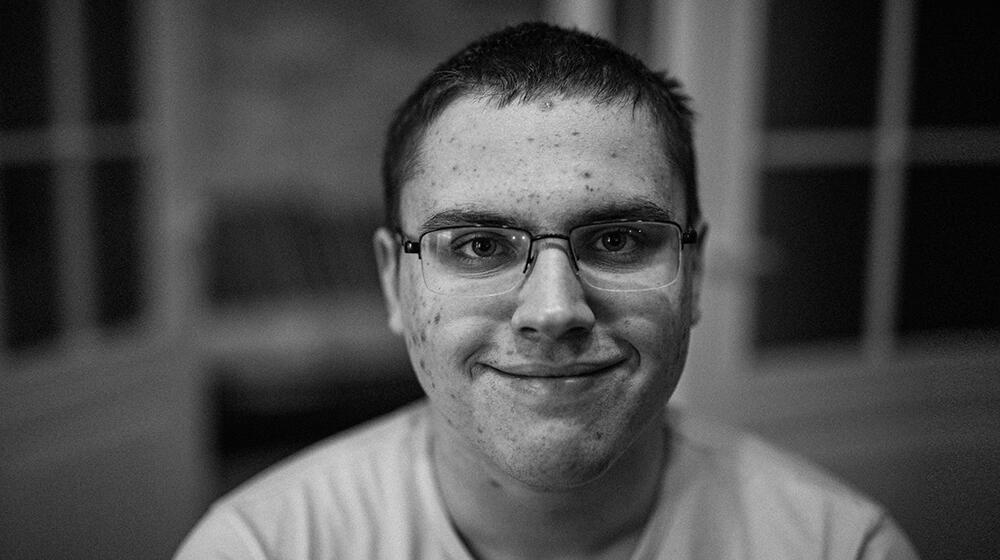Today, UNFPA and Everything Is Possible, an inclusive sports team, are launching a series of stories about young people with autism who live in our shared home.
The young people from this project can be compared to the first stones of an avalanche of young people with autism who are now finishing school.
Why do we use the comparison with an avalanche?
About ten years ago, the first integrated class for students with autism opened in Minsk, gradually such classes appeared in other schools, in all districts of Minsk, in all large cities. Until then, the mainstream school pushed such kids out into special schools for children with intellectual disabilities or into home schooling, bringing their chances of socialization to zero.
Now young people with autism are graduating basic school, and their flow is growing every year. They choose colleges, look for jobs, enter universities. And again, they hear the same excuses: "there are no conditions", "society is not ready", "we cannot take responsibility".
His mother, Olga Kirpik, an accountant:
Roman has always been a sunny child - bright, emotional, noisy and easy-going.
When he grew up, he became very vulnerable, demanding of himself and other people. And he can hardly tolerate when somebody promised something but did not keep the promise. And he gets very upset if he himself fails to do something.
He has always been ingenuous. Roman is probably the only student in college who has never claimed that he has stomach pain in the morning or the city gets stuck in traffic jams. He is never late for classes although it takes an hour to get there.
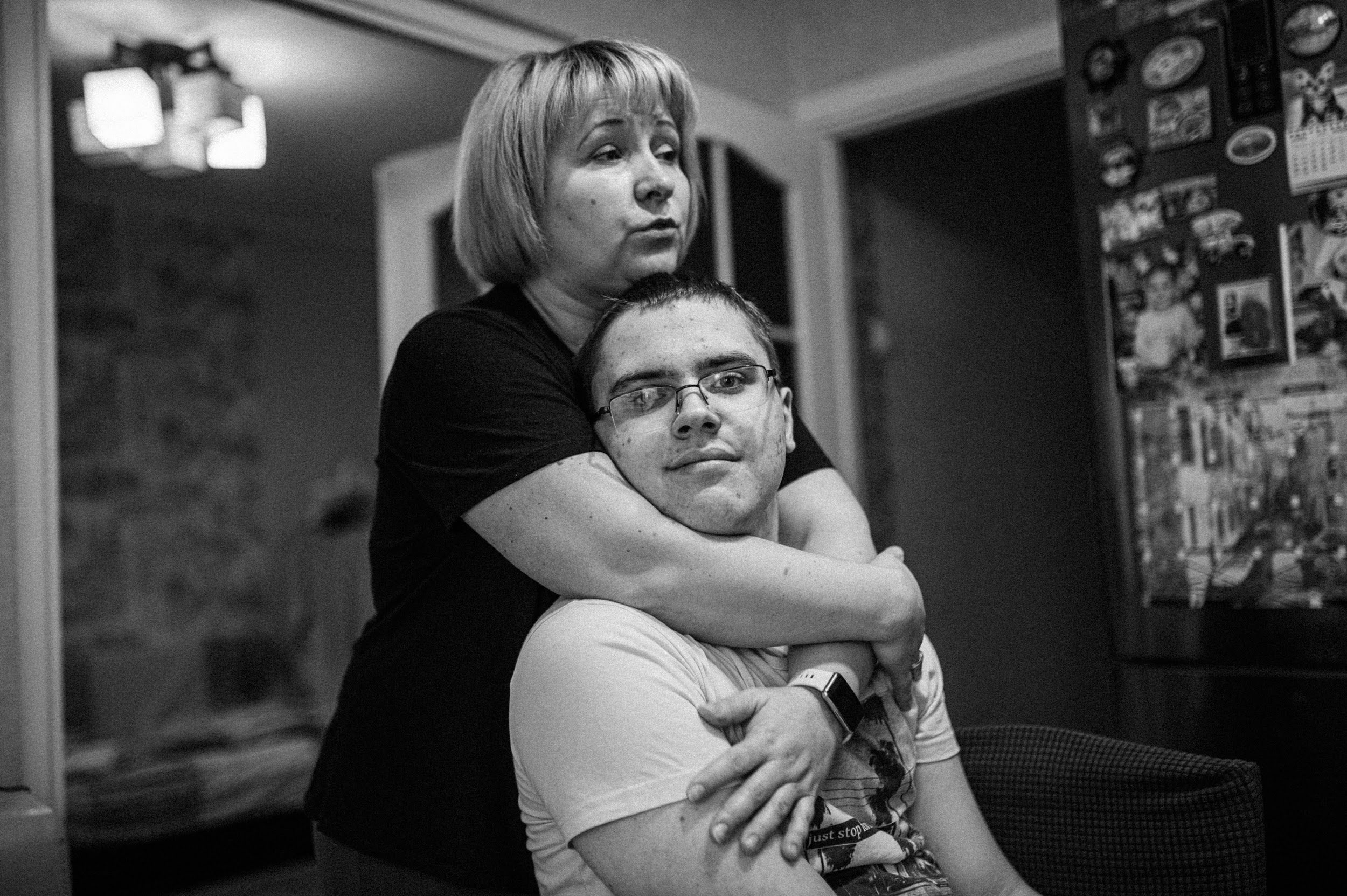
– And this is us hugging!
– Do you like to hug your mother?
– Yes, I feel calm,
– How do you feel?
– I feel very good...
Mothers of autistic children are the special category of parents. We, also, to some extent, are constrained by school requirements and are affected by persistent demands that “he must learn this and this, he must be able to do that...”
We have to be nice to everyone simply because our children do not fit into the norm. After work and household chores, we sit down with the children to do homework, recollect the laws of physics and the Mendeleev periodic table, finish everything that the child fails to do, and happily take on the duties in the parents’ committee...
With all our activity, it’s like as if we are screaming: I’m a great mom, look at me, I’m all golden!
Now I would tell other mothers: approach school requirements in a selective way, the main thing is that the child should feel comfortable.
Only in the upper school, realizing that there’s no escape for the school and that they will have to teach my son until graduation and give him a certificate, I began to let the situation go. Just at this time Vasilisa was born and she helped me a lot in the separation process. So, starting from the 8th grade, Roman did his homework himself and went to school using two subway lines.
In college, we let him go completely, although I still looked through his notebooks by force of habit. I got convinced that he was pulling off, he knew how to take notes and rewrite assignments. Though he could come home and forget about them or just recall before going to bed when it was too late to do the homework.
And then a ball of emotions rolls down the mountain: the son is trying to do something in a hurry, but it doesn’t work out - “Mom, you didn’t do it,” “I didn’t do it,” “What will happen, they’ll give me a low score”...
It is difficult for both mothers and children to realize their right to be wrong sometimes.

– I am frying pancakes... I like pancakes with sour cream. And this is Vasilisa, she’s making pancakes with me...
Recently, Roman and I have been talking a lot about accepting our own mistakes, and yesterday we again discussed the result of a generalization assignment in one of the subjects. Somehow he missed the teacher’s instructions and did not prepare the necessary information at home, so he copied it from his smartphone. The teacher did not pay attention, but his peers noticed and began to reproach him.
Roman, in confusion of feelings, crossed out what he had written, tore the notebook, pulled several pages out of the notebook in horror - and onward and upward. He immediately called me, “Mommy, I wasn’t prepared, I couldn’t, I tore my notebook”! I heard the teacher’s voice in the background: “Roman, it’s okay, you can finish it at home,” but I feel that she was scared by Roman’s emotionalism.
Overall, the subject teachers at the lyceum are quite young. And they have obviously heard something about autism, encountered it somewhere - perhaps not at work, but in life. The supervisor tells me:
– Olga, nobody complains to me that it’s hard for them to deal with Roman. Some of them even believe that with Roman everything is more simple and more obvious than with other teenagers: he won’t run into the smoking room, he won’t lie, and he will put down the assignments.
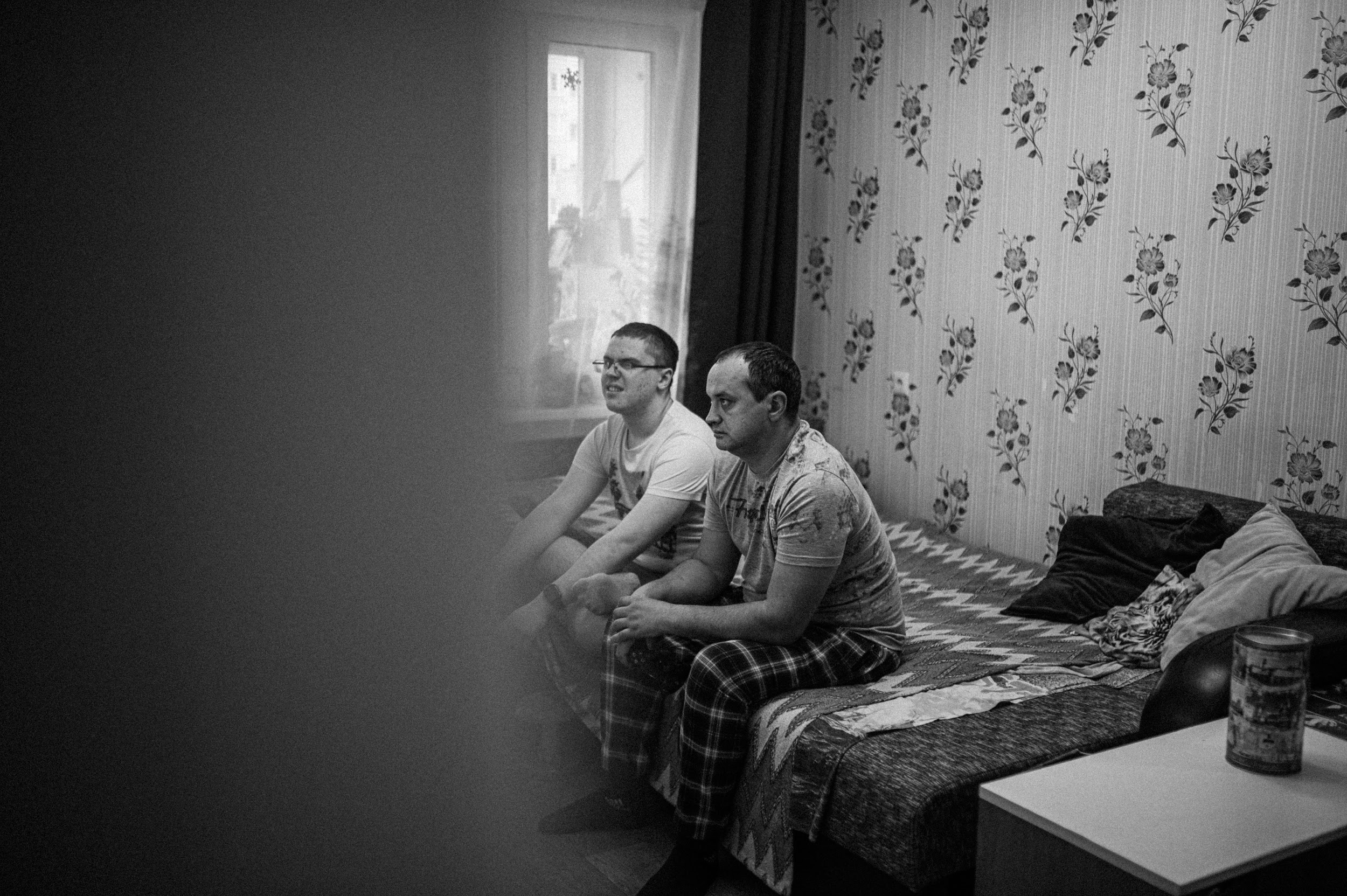
When Roman finished school, I still trusted the system. I remember that in yearly years of his life we went to doctors, and I felt enormous fear of the diagnosis because it was not clear how to integrate such children into society.
But during 17 years since then the system should have been tailored to such children, I thought. It means that somewhere there must be a professional who would tell us what to do after school. What documents need to be collected, what specialties and in what education institutions are available for our children. I used to work in the education department and saw long statistical reports and piles of papers that schools are required to fill out.
But where are the people who analyze them?
I searched through the information on the Internet and was very happy to find a list of professions for graduates with mental and physical disabilities which was compiled back in 1995. There are seven sheets of paper, excellent specialties, I would love to go to study myself. However, it is not indicated where such specialties are offered to students with disabilities.
Nevertheless, I felt ten feet tall, and I downloaded the list of VET lyceums and colleges in the capital city.
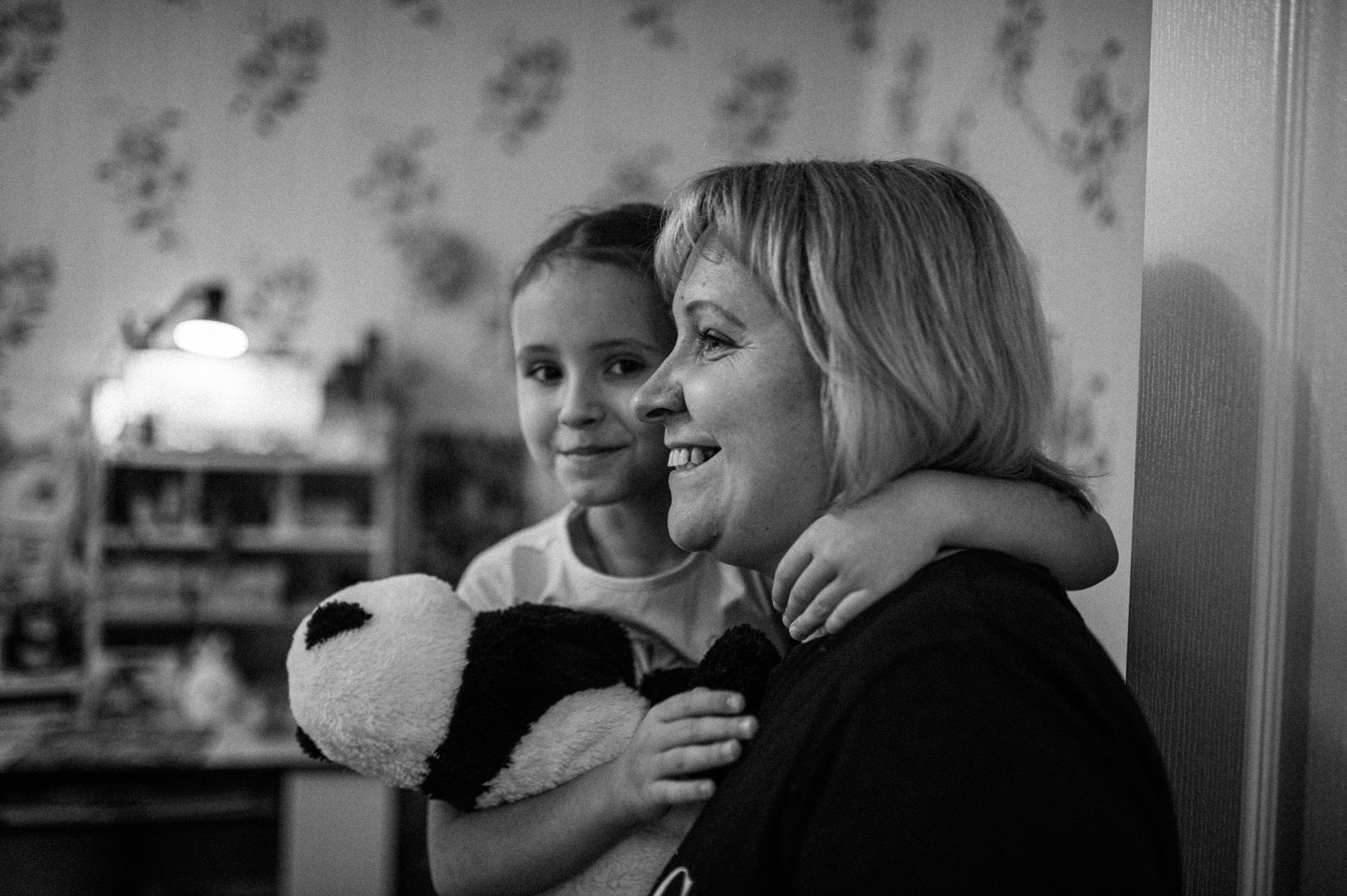
Fortunately, I had time to walk because after Vasilisa was born, my husband and I decided that I would leave work for a while. I started with the Center for Remedial and Developmental Learning and Rehabilitation, the Republican Institute of Vocational Education (RIPO), Center for Support to Families and Children... Wonderful, sincere people, but with the same success I could have talked about the abilities of our children with a friend in my own kitchen.
Then I saw the information on a website that the Municipal Committee of Education has a department or sector that deals with special vocational education and training. I didn’t sleep half the night reproaching myself: “Olga, you’ve worked in the education department during half of your life and you don’t know that there is a designated sector which is supposed to help you?!”
I wanted to rush there in the morning but I called them before going there. I should confess, I didn’t ask the last name of the person I spoke to, but the reaction to my story about Roman was something like this:
– (talking to someone in the office) Sveta, here the mother of the child from school No. 18 is calling, what institutions can they enter?..
Then to me:
– What education does he have? Mainstream, basic? Well, what’s the problem – you can try any institution you want. What education institution do you want to enter? Well, yes, you can try there too, if they admit such students.
I said:
“But I want the education institution to have at least some experience and teachers who have seen autistic children before.” Do you have any statistics on where do children with mental and physical disabilities who have received basic education study?
I was answered that there is statistics on schools for children with special needs. And children with mental and physical disabilities who have a mainstream education certificate are so uncommon that they are not reflected in the statistics.
Where are you, other autistic kids? Why during all 18 years we, on the one hand, have heard that there are many of us, but on the other hand, we feel as if we are the only ones?!
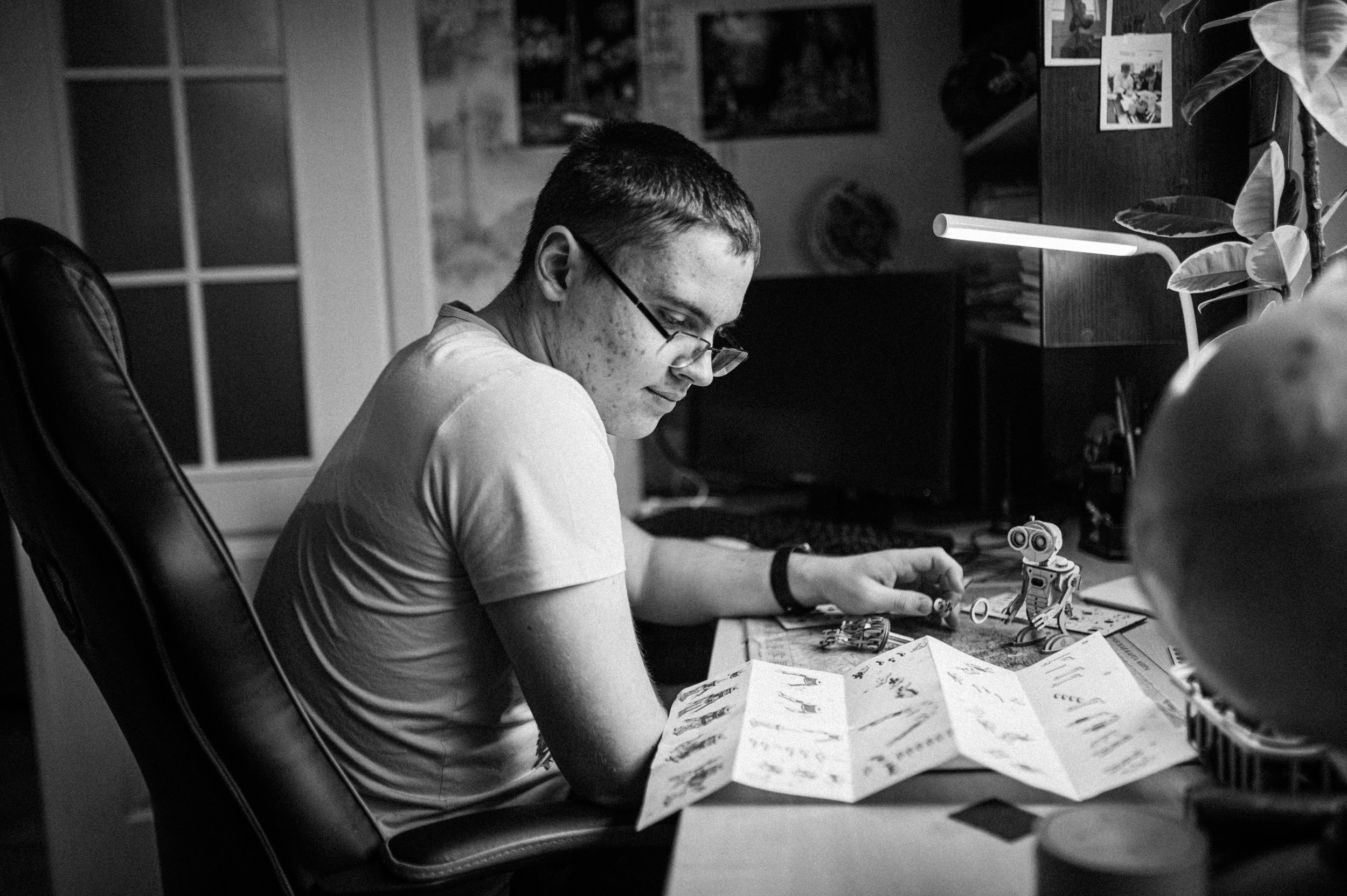
– These are robots. I like building robots, and I also like playing games..
I am ashamed to admit why Roman has ended up in this college. We didn’t proceed from his preferences, we didn’t even discuss what Roman liked and what he didn’t. I simply opened the doors of lyceums and colleges one by one, went to the management and told them about Roman.
They responded, in most case, with empathy: ah-ah, such a difficult diagnosis! But please note, studies are organized in shifts, but the question is whether such child needs this? We work at a construction site, there are no greenhouse conditions there, so does he need it?..
However, I could also hear something like this:
– Of course not! We train cooks and pastry-cooks for restaurants; even normal children are bullied because they are unable to work in a team! The Medical and Rehabilitation Expert Commission (MREC) may write you anything, and it will be then our problem what to do with you.
Ours, at that time, professional lyceum No. 14 for woodworking production and transport services, was the only one where they didn’t tell me “no” from the doorstep. Even during my visit to their “Admissions Event”, the head teacher calmly listened to me and said:
– Roman studies at school, why do you think that he won’t be able to study in our college?
We returned to this college at the end of May with all the documents, and we had a long substantive conversation with the same head teacher - about Roman from his early childhood. The director looked at the documents, agreed that Roman qualifies by scores and honestly said:
“I don’t know whether you will succeed to find an enterprise that will employ him. You and I will have to think about this together”.
Well, mothers of children with special needs should act as doctors, psychologists and teachers. But there are limits to what is feasible - we do not open the doors to the offices of enterprise managers with our feet.
Roman is now supposed to have a second apprenticeship, and yet, not a single enterprise in the city is willing to employ an autistic person. He is doing his apprenticeship at the college.
It was not easy for Roman to study. After the reorganization, our lyceum was incorporated into the college, the management changed including the psychologist. Problems emerged, especially in terms of on-the-job training.
Roman is fast, emotional, hyperactive: whether he has done something or has failed to do it, he requires attention immediately. He still has difficulty waiting for his turn and keeping attention and information given in a noisy environment with lots of distractions and a lot of people.
I think a practice of mutual control between students could be adopted with “done - wait” approach. But this would also require knowledge, experience, support, and most importantly, willingness.
When the work with machines began, the foreman had a great fear that Roman would definitely shove something somewhere or cut it off. Roman seemed to be a problem to which they didn’t have the solution, and since they didn’t have it, it would be better if this problem did not exist.
Well, yes, Roman needs more attention, but he is also the worker, like his peers. He can manage if the task is presented in a different way: not “dig from here until lunch,” but, instead, if the task in broken down into short segments. There are enterprises employing deaf or blind people - in fact, they also need a different presentation of professional information.
Roman was offered an apprenticeship at the college with a more experienced supervisor. The teachers treat Roman well, and he is calmly preparing for the exams.
Apparently, I will feel calm only when I see Roman’s placement to his first job.
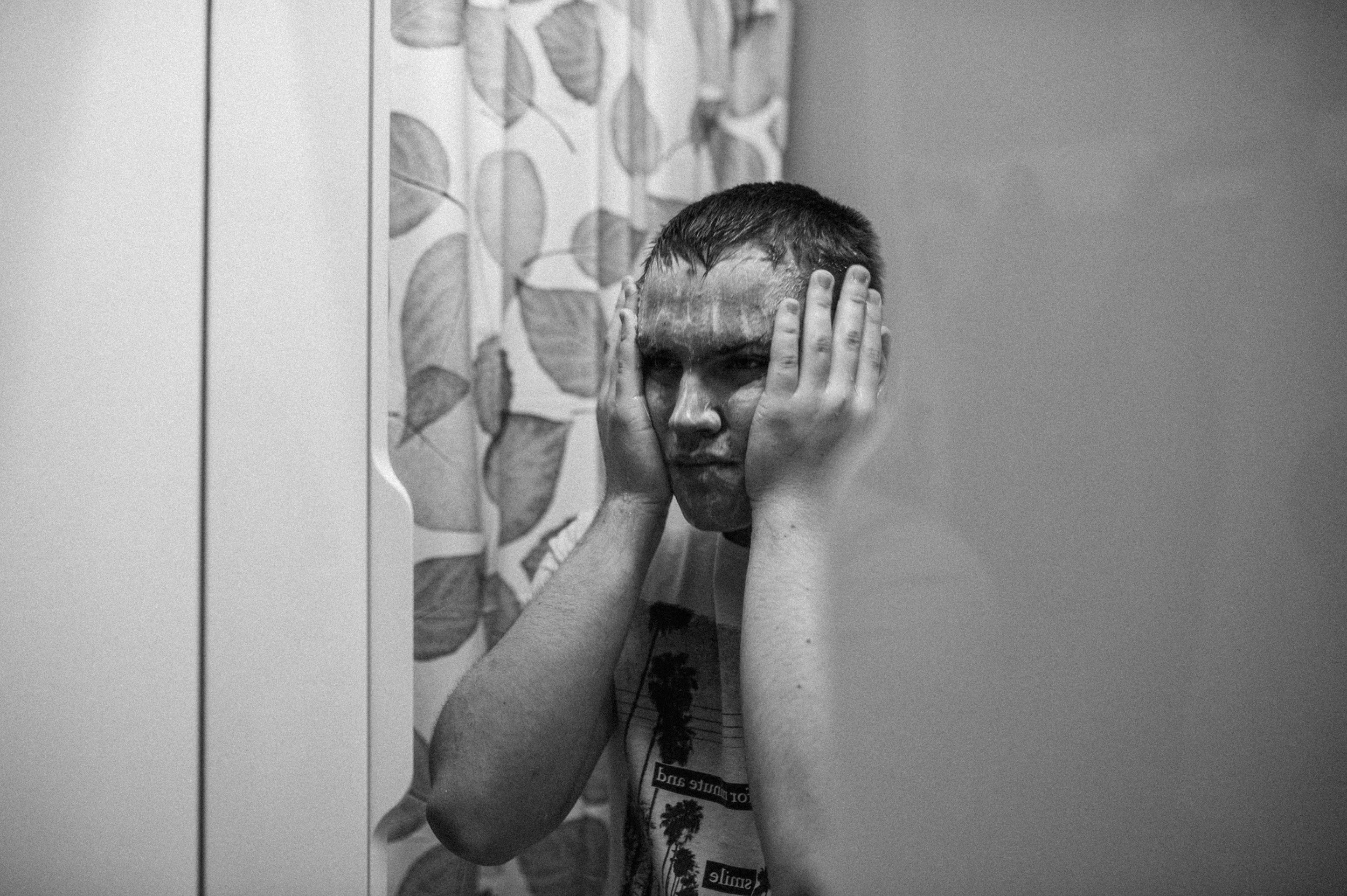
– I am washing my face! Oh, it's me, yes?
At the employment office, I spoke with a specialist who had been employing people with disabilities for 25 years. She can count “ours”, that is, those with autism, on her fingers.
One of the persons she was supervising got a job of a cleaner at the Dynamo stadium. He was doing well until two “well-meaning” colleagues invited him to celebrate something. Having tried alcohol for the first time and having lost his head, the young man did something wicked.
His “kind” colleagues are still working in their jobs, but “our” guy was immediately fired: it is not clear what to expect from a client of a psychiatrist.
In such situations, people with autism or other disabilities should also be somehow protected. In the meantime, I have little optimism about successful prospects of Roman’s career.
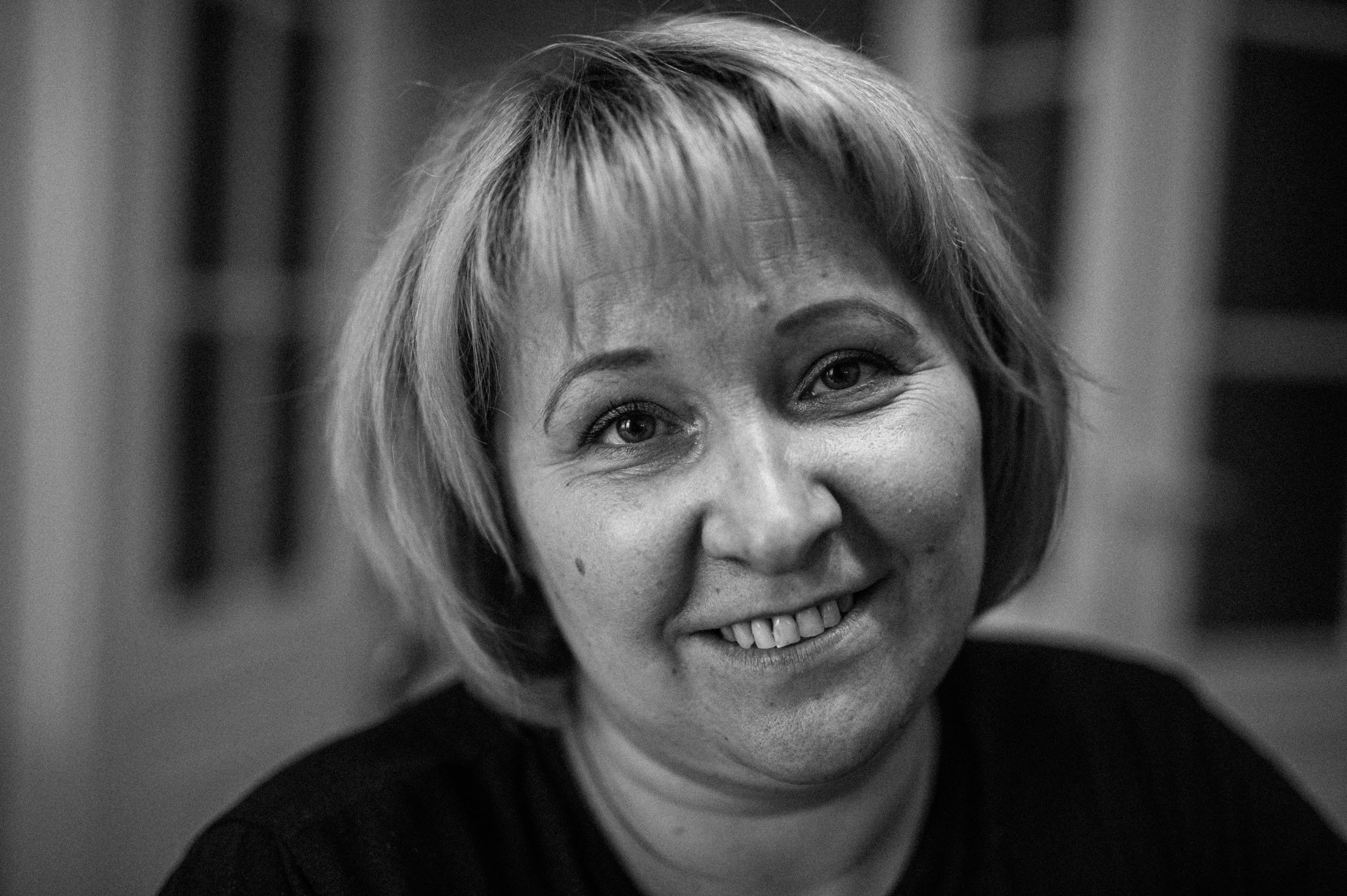
– This is Mom (smiling)
– What is she doing?
– She is smiling.
–What’s she like, your Mom?
– She is kind…
I often think, what about other parents? Good, caring, doing everything right, but not able to fight for their child?
I don’t know whom to address this question, but why not create a supervisory service for graduates with mental and physical impairments, for example, under the Education Committee? A service where the parents of a graduate with mental and physical impairments could come with all documents so that a supervisor could be assigned to them. The supervisor, having reviewed the opinion of the Medical and Rehabilitation Expert Commission, could look through the up-to-date information about specialties and admission schedules. And after admission, together with the parents, go to the director to discuss whether the education institution is willing to train a young person with special needs.
It is not only important for the child to begin studies in a comfortable manner, but also for the college or lyceum to feel supported by the government and know where to refer if problems emerge. But, most importantly, this would enable the authorities to find a job for a graduate with special needs.
Author: Ирина Дергач
Photos: ©UNFPA Belarus / 2023 / Victoria Gerasimova

